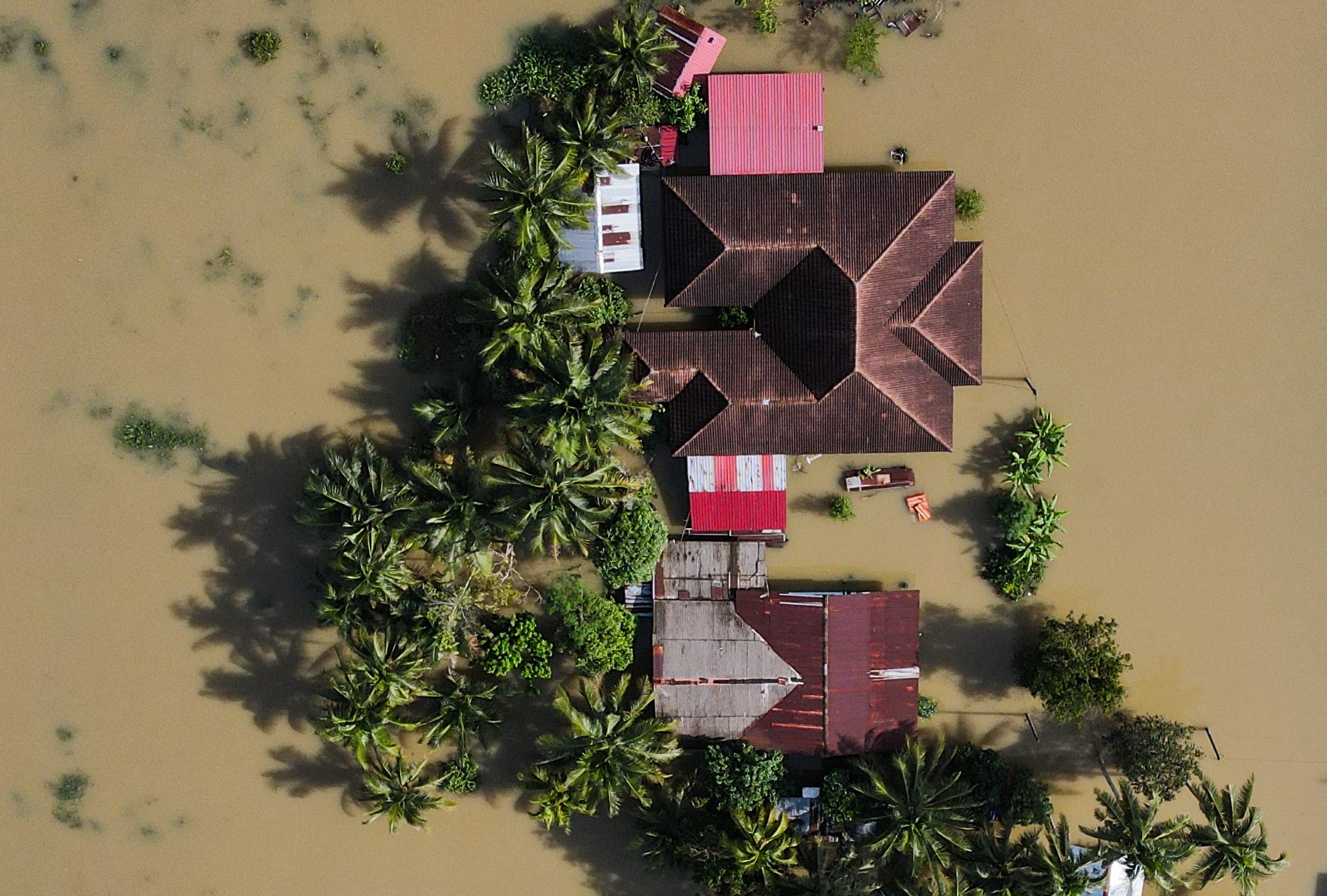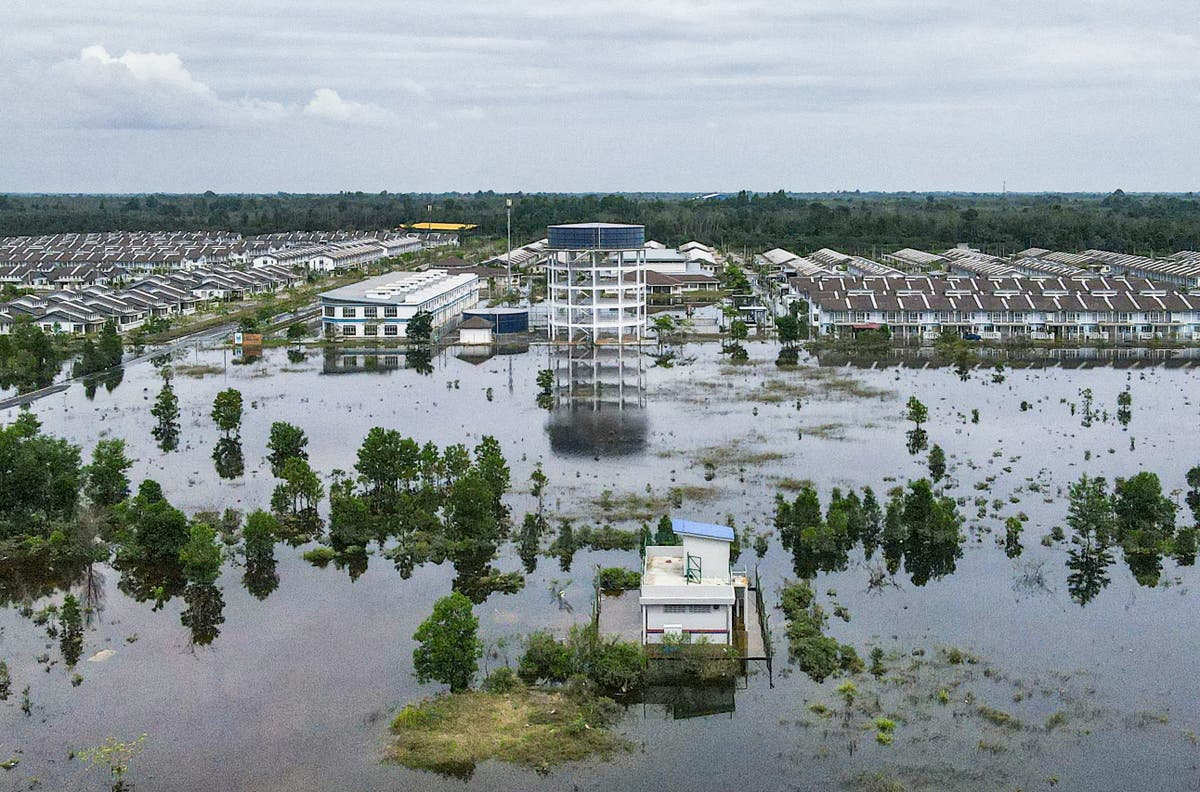Malaysia is facing widespread devastation after unprecedented monsoon rain flooded swathes of the country, killing six people and forcing over 150,000 to flee their homes.
The prime minister, Anwar Ibrahim, said some parts of the east coast received more than six months’ worth of rainfall in just five days, causing significant damage to infrastructure, homes and farmland.
Between 26 and 30 November, towns such as Tumpat and Tanah Merah in the Kelantan region recorded over 1,167mm rainfall while Besut in neighbouring Terengganu saw a staggering 1,761mm.
Addressing the parliament, Mr Anwar said the rainfall was “far beyond expectations” and unprecedented in its intensity.
Although floodwaters have begun to recede in some areas since, the government remains on alert for a second wave of flooding. Meteorologists have predicted more heavy rainfall as a monsoon surge approaches on 8 December.
In Tumpat, one of the worst-affected areas, some people returned on Monday to find their homes and businesses in ruins. Many discovered collapsed walls, broken roofs, and waterlogged furniture scattered across their properties.

Muhamad Alim, a shopkeeper whose food store was submerged, recalled the terrifying night the waters surged through his home. “Electricity was cut off, and there was no water supply,” he said. “So, we were stuck, sitting there as if we were in the middle of the sea, surrounded by water. You could hear the sound of water rushing, cutting through the silence of the night.”
Government data indicates that 85,000 people remain in temporary shelters, down from over 150,000 at the height of the disaster. The floods have caused extensive damage to roads and other infrastructure, with repair costs estimated at £177m.
Emergency workers have been using boats to deliver food and supplies to the affected areas.
The devastation extends beyond Malaysia, with neighbouring Thailand also grappling with the aftermath of heavy rainfall. Flooding in southern Thailand has claimed 25 lives and affected over 300,000 households, with thousands of people still staying in shelters.
Schools and nearly 100 health facilities in the region remain closed due to the deluge. Thai authorities have warned of more heavy rain between 3 and 5 December, heightening fears of flash floods and river overflows.
The economic impact has been severe, particularly on agriculture, as thousands of acres of rice paddies have been inundated. Transport networks across the affected regions have been disrupted, complicating relief work.
Tourism in southern Thailand, a popular destination for Malaysian holidaymakers, has suffered as well, with officials advising against travel to the area.
As both countries prepare for another monsoon surge, emergency measures are being ramped up to protect lives and property.
Mr Anwar stressed his government’s commitment to supporting those affected, saying efforts are underway to prevent further devastation.
Additional reporting by agencies.

